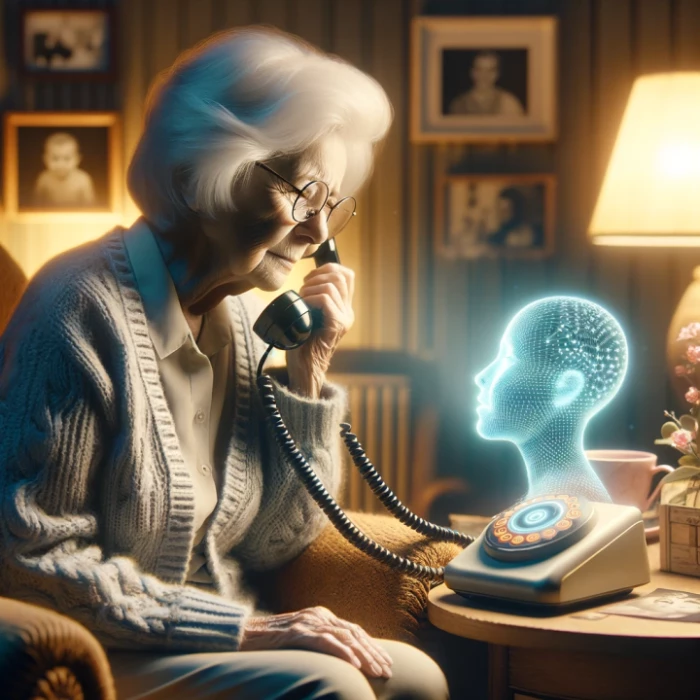AI Companions Show Promise for Dementia Patients, But Ethical Concerns Remain
by Mighva Verma - 5 months ago - 2 min read

Artificial intelligence may soon play a more personal role in dementia care. Researchers and healthcare providers are testing ranging from lifelike avatars to robotic assistants to support patients with cognitive impairments, amid growing evidence they can reduce agitation and loneliness.
A peer-reviewed study published in Intelligent Computing (2025) found that AI systems can assist dementia patients with daily routines, cognitive stimulation, and emotional support, sometimes with greater precision than human caregivers in routine tasks. These AI tools include virtual assistants, interactive voice bots, and emotion-sensing robots designed to detect stress or confusion in real time.
In one initiative cited by The New York Times, a state-funded pilot in New York tested a TV-based AI named “Joy,” which reminds residents to take medication, offers conversation prompts, and reports activity patterns to caregivers. Early results show improvement in engagement and mood stability, according to sources involved in the project.
Globally, AI tools like Lenovo’s photorealistic avatar “Liv” and the socially assistive robot Paro have been deployed in memory care centers. These companions respond to facial expressions, speech tone, and even pauses in conversation to adjust their behavior. Clinical trials in Japan and Germany are assessing whether they reduce caregiver burden without compromising human interaction standards.
Experts caution against overreliance. Speaking to ScienceDirect, researchers flagged ethical concerns including consent, privacy, and emotional overdependence especially in patients with moderate to severe cognitive decline. “If these systems aren’t transparent or properly monitored, they risk replacing essential human connection rather than augmenting it,” said Dr. Amara Velasquez, a leading AI ethicist.
Despite those concerns, support for AI in elder care is accelerating. U.S.-based nonprofit CareYaya has launched a phone-based AI companion, QuikTok, offering conversational engagement to older adults without smartphones. Early users reported reduced feelings of isolation, according to the company.
Further trials are underway, but researchers agree: AI will not cure dementia but it may become a vital layer of support as aging populations grow and caregiver shortages persist.